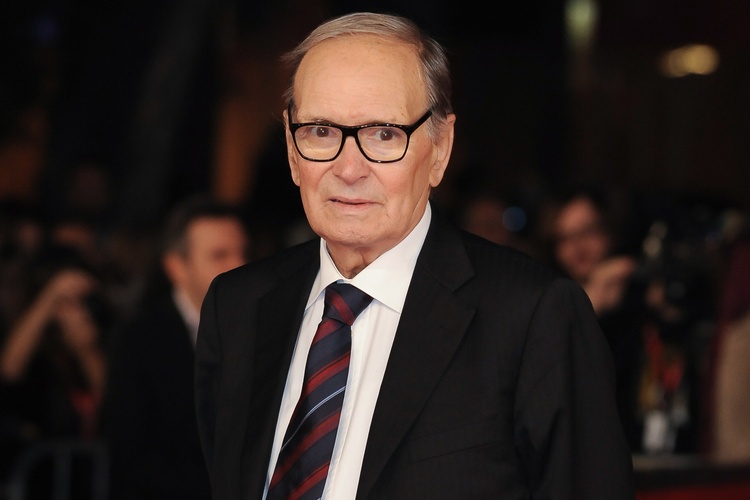Morricone died in a Rome hospital where he was being treated for a fractured femur following a fall, according to a statement from lawyer and family friend Giorgio Assuma.
Morricone “passed away in the early hours of July 6 with the comfort of his faith”, the statement said.
He remained “fully lucid and with great dignity right until the end”, it added.
Tributes soon began pouring in for the maestro, who composed the music for about 500 films, including his old childhood friend Sergio Leone’s 1966 spaghetti western The Good, the Bad and the Ugly and Quentin Tarantino’s The Hateful Eight, for which he won an Oscar in 2016.
He also composed scores for movies such as The Mission and Cinema Paradiso.
“We will remember forever and with infinite gratitude the artistic genius of maestro Ennio Morricone,” Italian Prime Minister Giuseppe Conte said.
“He made us dream, he moved us and made us think, writing unforgettable notes that will remain forever in the history of music and cinema.”
Italian President Sergio Mattarella also honoured the musical genius.
“With his soundtracks he helped greatly to spread and strengthen Italy’s standing in the world,” Mattarella said.
Italian actress Monica Bellucci said of Morricone that “there are people who have the ability to make the world better because they know how to create beauty”, while Gilles Jacob, the former head of the Cannes film festival, described him as the “emperor” of film music.
Born in Rome on November 10, 1928, Morricone began composing at the tender age of six, under the influence of his father – a professional trumpet player.
He met Leone at school, before he enrolled in a trumpet program at the prestigious Saint Cecilia conservatory at the age of 10.
He started out writing and arranging music for Italian pop singers, radio, TV and theatre before moving into film scoring, sometimes uncredited or under a pseudonym.
His film career began to take off in 1961, when he was 33, with a collaboration with director Luciano Salce in Mission Ultra-secrete, before going on to gain fame with the score for Leone’s 1964 film A Fistful of Dollars, starring Clint Eastwood.
Before winning the Oscar for best film score in 2016, Morricone had been nominated no fewer than five times before the Academy of Motion Picture Arts and Sciences – embarrassed that such a talent had not been recognised sooner – presented him with a lifetime achievement award in 2007.
Morricone’s previous nominations were for Days of Heaven (1978), The Mission (1986), The Untouchables (1987), Bugsy (1991) and Malena (2000).
He worked with some of cinema’s most iconic filmmakers: after his collaboration with Leone, he worked with Italian legends Federico Fellini and Pier Paolo Pasolini and later with the likes of Pedro Almodovar, Bernardo Bertolucci, Brian De Palma and Oliver Stone.
He also developed a close friendship with director Giuseppe Tornatore, whose Cinema Paradiso won the Oscar for best foreign film in 1989.
Lawyer Assuma read a final statement from Morricone outside the hospital where he died, Italian daily La Repubblica reported.
“There’s only one reason why I want to say goodbye like this and have a private funeral – I don’t want to bother anyone,” the statement read.
The statement went on to pay tribute to his family and friends.
Morricone married Maria Travia in 1956.
They had four children, three sons and a daughter.












